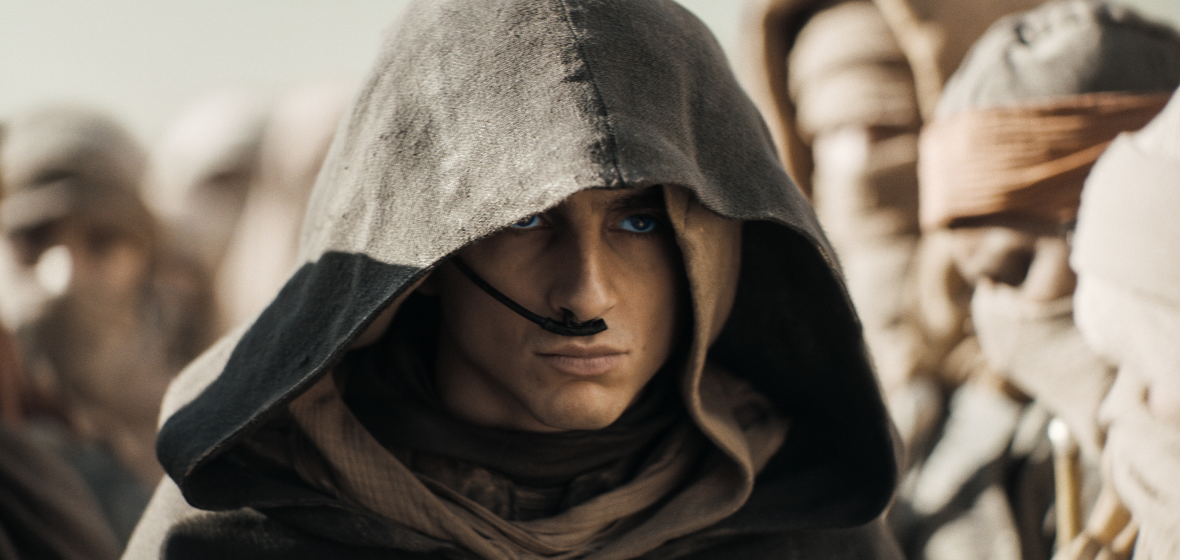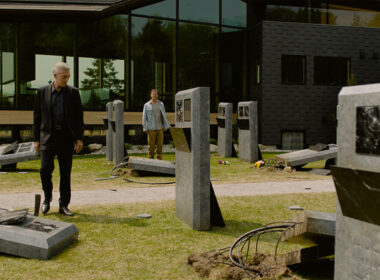Denis Villeneuve’s Dune saga is the type of project that frustrates filmgoers. It’s a long epic with impenetrable lore. There are long, quiet dialogue moments where characters grunt about religion and politics, packed with words that the film doesn’t care whether you understand or not. But give this to a sci-fi nerd, and it’s like honey. If you liked the first film, then everything on this second outing is up your alley – it’s a direct continuation of the previous film that changes nothing about the style and form of the story.
If there were lessons to take from the first one, Villeneuve ignored them. Dune Part 2 is more of the same, for better or for worse.
Frank Herbert’s Dune trilogy had been pegged as an unadaptable work of literature. David Lynch had a go in the 1980s, and it was a resounding flop. For decades, no one wanted to touch the tome because no one could get the tone of it exactly right.
Lynch’s campy space opera didn’t sit well with fans of the book who earnestly love the world created by Herbert. Villeneuve’s take is the correct one. He finds no lightness and no humour in the tale. The vicious Harkonnen are fascist-coded, the Empire has the brightness of a benevolent colonial power, the rebels Fremen Middle Eastern freedom fighters stand up against colonialism that’s exploiting their valuable natural resources. The book winks so much at the reader that, at some point, one of the characters openly references the World War Two. Villeneuve embraces this and makes precisely the film fans wanted – and if it worked as a book, then it should also work as a film.
The story catches up exactly where the previous one ended. Paul Atreides (Timothée Chalamet) and his mother, Jessica (Rebecca Ferguson), join the Fremen’s cause against the Harknonnen army. The leader of the Fremen, Stilgar (Javier Bardem), believes Paul to be the prophesied Muad’dib that will lead his people to freedom, though Paul’s Fremen lover Chain (Zendaya) sees these stories as fairytales used by the religious order Bene Gesserit to control her people.
At the same time, Baron Harkonnen (Stellan Skarsgård) grows frustrated with his general Beast Rabban (Dave Bautista) for failing to control the Fremen and take control of the planet Arrakis so him with his own nephew Feyd-Rautha (Austin Butler).
And then there’s the Emperor (Christopher Walken) who, amid reports the Muad’ib could be the end of his rule, recruits his daughter Princess Ireland (Florence Pugh) to negotiate with the leader of the Bene Gesserit (Charlotte Rampling). Also, Paul’s mother is pregnant with his sister and has long conversations with the foetus, which has the power to see into the future.
There are two types of people reading this review: those who tuned out halfway through, and those who have been nodding “yes” the whole time, because they know what’s coming and cannot wait to see it on the screen.
There is no doubt Villeneuve has a lot of respect for the original material. The tone and the style are on point; the world is large, and the scope is ingrained with so much grandeur that it is breathtaking. The action sequences are shot like Peter Jackson, David Lean and Eisenstein would. Three gigantic worms coming down on a whole army of space-nazis is one sight that needs the giant screen to properly enjoy it.
In a Villeneuve film, emotions take a back seat. Most of the characters are way too serious about their pursuit, with the exception of Chani, who becomes the sentimental stronghold of the film. She is the only one who understands that Paul’s messianic turn will trip him from his humanity. Her intentions are not only romantic, she values the human side of a person.
Villeneuve knows this all too well. Near the end, he cuts to a Chani reaction that has more tenacity than the largest widescreen action sequence. For a moment, we see Villeneuve as we rarely do – in tune with that part of us that doesn’t have a scientific explanation.
This is still Paul’s film. If you read the book, you know what to expect, but seeing it happen on the big screen is still impressive. As far as cinema goes, this is untouched territory.
David Lynch never got this far, so Paul Atreides has always been a reluctant and relatable hero on the big screen. His arc in the second one is supposed to shift our perception of the idea of the messiah as a flawed concept. Paul, literally back from the dead, becomes a genocidal menace driven by the one goal he believes he was born to do. The film’s third act, which escalates into a blown-out victory lap for the rebels, ends as we realise that we have witnessed the creation of a necessary monster – and that it is okay with us.
For all the criticisms of Villeneuve, Dune delivers what it promises. Everything is played with complete reverence for its source material. There’s not a single shred of kitsch or meta-commentary, as much as we would want it. The experience takes its toll on us – I was exhausted by the end, reeling from the visual spectacle and the philosophical conundrums I had just witnessed for more than two and a half hours. It reminded me how earnest blockbusters used to be before comic books added post-modern lightness.
Verdict: 4 out of 5:
For Herbert-heads and fans of the original. This one is as epic, grandiose, and bloated as promised. It won’t convince new fans, but at least it has the discernment of not trying to.




